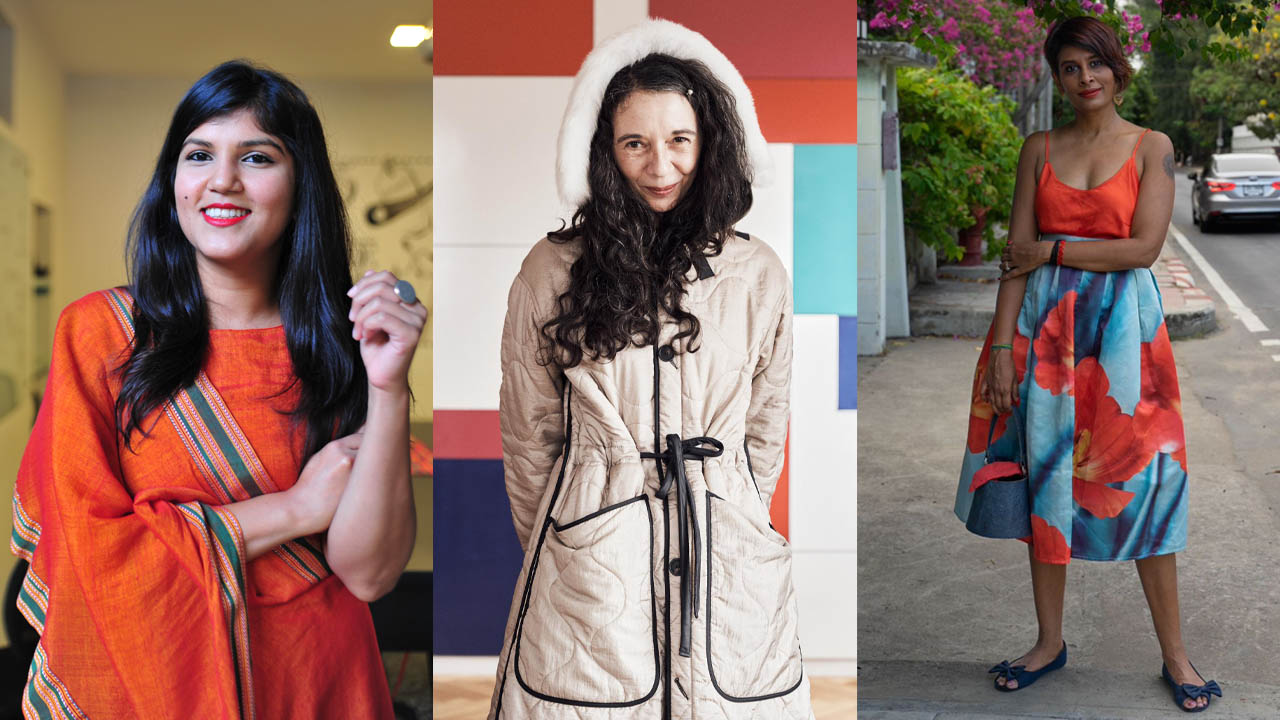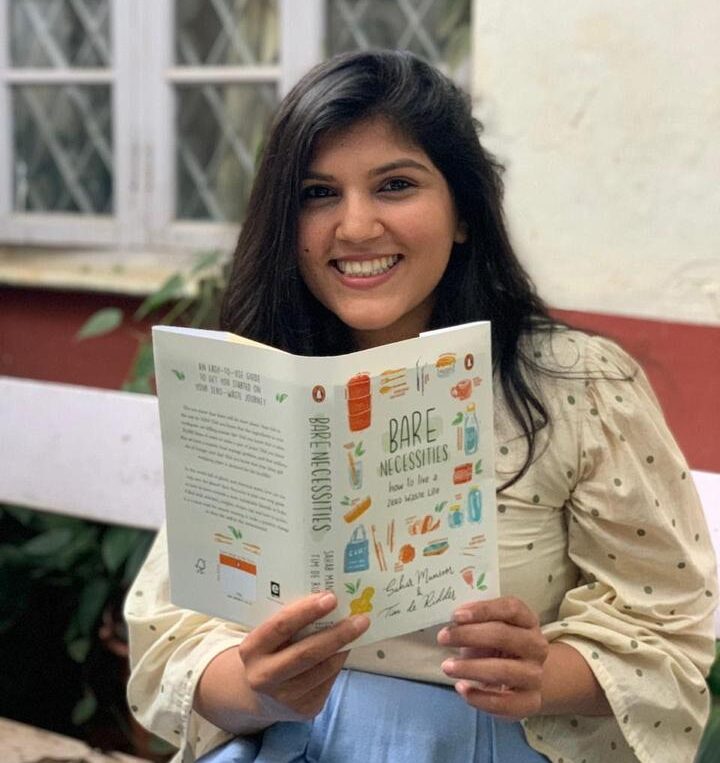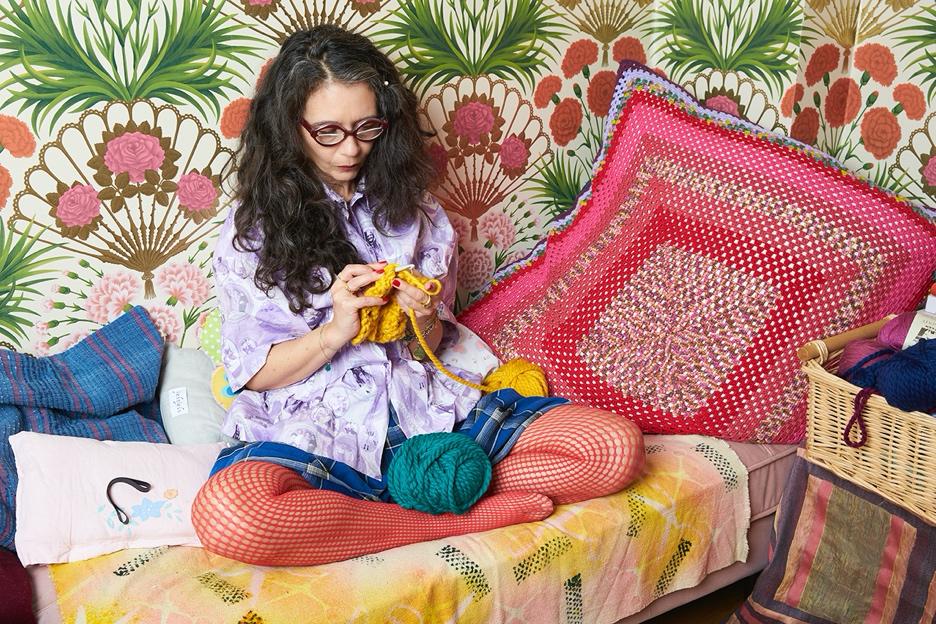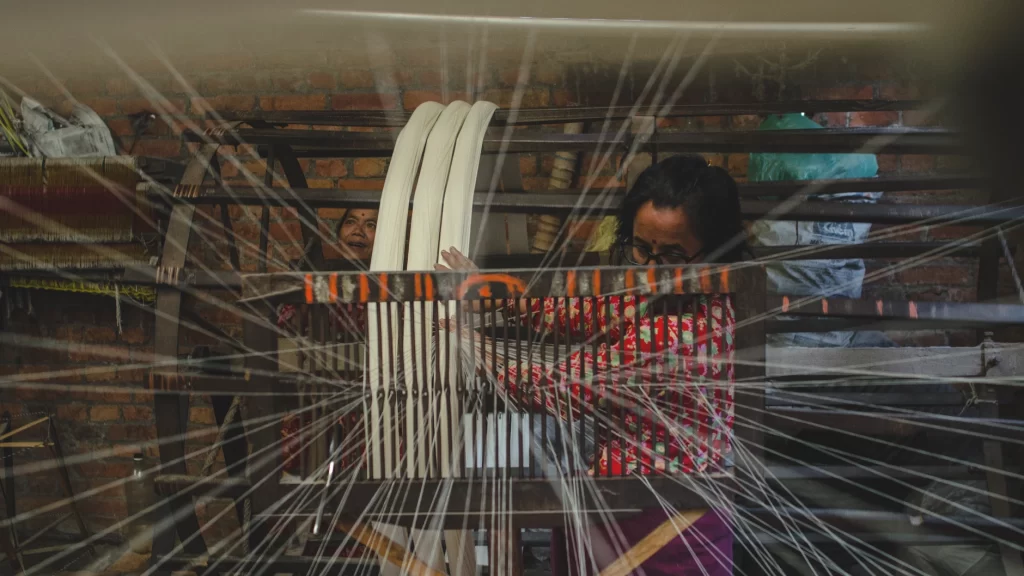‘Clothes are not going to change the world. The women who wear them will.’ –Anne Klein
Sustainability is not a zero-sum-game. Similarly, when it comes to fashion, there is no one-size-fits-all. But what happens when the two worlds collide? We spoke to three stylish women who’re sworn to keeping things sustainable, and discovered that there is, in fact, a common thread. Or five. Their styles may be vastly different, but the principles they follow are not. Orsola de Castro, co-founder of Fashion Revolution and author of Loved Clothes Last, Sahar Mansoor, founder of Bare Necessities, and Aparna Sharma, writer and sustainable fashion influencer, gave us a peek into their fashion rules. And we found some leaves we could all pick from their books.

1. They prioritise quality over quantity. ‘Instead of buying more items that won’t last, I invest in high-quality, durable pieces that have a longer life cycle,’ says Mansoor. ‘This reduces waste and ensures your closet remains timeless.’ ‘I am extremely mindful about what comes into my wardrobe,’ adds Sharma. ‘I limit my choice and that makes my life easy.’
2. They don’t ‘just’ discard. And they don’t let others discard easily either. ‘I believe the only antidote to throwaway society is to keep,’ says de Castro. ‘Just last week, a friend in New York was getting rid of some clothes, so I took them from her.’ Mansoor emphasises the need to repurpose, reuse and upcycle clothes that may have reached end-of life. ‘Creative tweaks like tailoring or DIY projects can extend the life of garments and prevent them from ending up in landfills,’ she says.
3. They repair and look after their clothes. ‘Repairing and maintaining clothes is very important to me,’ says de Castro, the title of whose book, Loved Clothes Last, is now also a popular social media hashtag. ‘I only wash clothes if they absolutely need to be washed. I do a lot of spot cleaning and refreshing. I don’t mind clothes that are visibly mended either.’ Mansoor’s tailor has been stitching, mending and altering clothes for her since she was 5!

4. They embrace preloved. De Castro’s friend in New York isn’t the only one whose clothes she’s decided to relove. ‘I’m not a minimalist at all,’ she says. ‘In fact, I have a lot… from my grandmother, my aunts, my friends. I take these clothes, I look after them, I mend them and I enjoy wearing them.’ Sharma prefers to pick up her clothes at swap events and thrift model fundraisers. ‘These clothes come into my wardrobe with beautiful stories of circularity and love which makes styling more joyful,’ she says. ‘Relove has made thrifting more accessible and helps extend the lifecycle of fashion items, reducing overall waste and consumption,’ adds Mansoor.
5. They shop consciously. ‘If I do buy, I buy very carefully,’ says de Castro. ‘Set your mind on ethical, alternate, sustainable designers, and brands that work with local communities and artisans.’ Sharma concurs. ‘I only bring in clothes that are made in a sustainable manner, usually from a local brand working with sustainable materials and empowering local artisans,’ she says. ‘Be mindful of the materials and brands you support by opting for eco-friendly fabrics and ethical companies,’ adds Mansoor. If you’re wondering how, de Castro has a word of advice. ‘Follow the brands you think are sustainable on their socials,’ she suggests. ‘Contact them and build a relationship. Most of them are approachable. And do ask questions. The really sustainable ones will always respond.’ Well, we couldn’t agree more!







